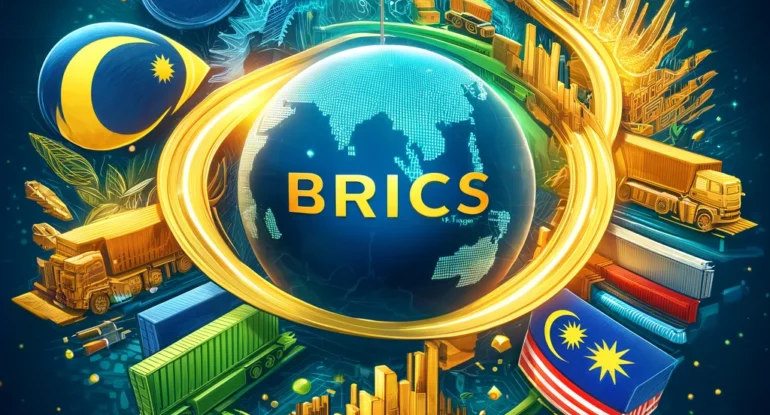How BRICS Membership Could Boost Thailand and Malaysia’s Global Influence

When Goldman Sachs’ chief economist Jim O’Neill coined the term BRICS, few believed the bloc—comprising Brazil, Russia, India, China, and later South Africa—would have a significant impact on world affairs. Fifteen years later, BRICS has expanded and solidified its influence, with Iran, Egypt, Ethiopia, and the UAE joining its ranks. Now, Thailand and Malaysia are poised to become the first Southeast Asian nations to join, raising questions about how membership could reshape their economic and geopolitical standing.
A Path to Greater Economic Autonomy
Both Thailand and Malaysia currently belong to ASEAN, the regional bloc focused on strengthening trade and political ties among its ten member states. However, BRICS offers a broader platform.
Economic Diversification and Trade Opportunities
BRICS membership would grant Thailand and Malaysia access to emerging markets beyond traditional Western trade partners like the US and EU. Expanded trade relationships, especially with China and India, could reduce reliance on Western markets and bolster economic resilience.
According to Malaysian Prime Minister Anwar Ibrahim, BRICS membership would enhance the country’s political and economic autonomy. “We should be confident enough to determine our course of action, our priorities, our strategic interests defined on our terms,” he stated.
Enhanced Investment and Infrastructure Development
China’s Belt and Road Initiative (BRI) has already funneled substantial investments into Thailand and Malaysia. Joining BRICS could amplify these efforts.
- East Coast Rail Link (ECRL): Extending to the Thai border, this project promotes economic integration between the two countries.
- Real Estate Opportunities: Increased trade and investment could spur demand for industrial, logistics, and commercial properties, driving growth in real estate sectors.
James Woo, a Beijing-based property consultant, highlighted the potential:
“Expanded trade and investment flows could drive demand for real estate, such as industrial, logistics, and commercial properties to support the increased economic activity.”
Access to the New Development Bank (NDB), backed by BRICS, would provide additional financing for infrastructure and development projects, bolstered by Saudi Arabia’s recent membership.
Geopolitical Implications
BRICS membership would elevate Thailand and Malaysia’s influence on the global stage, positioning them as advocates for the Global South. However, this move is not without risks:
- Impact on ASEAN Unity
- Joining BRICS could weaken ASEAN’s relevance, as member states prioritize other alliances.
- Malaysia and Thailand’s pivot to BRICS might also shift the balance of power within ASEAN itself.
- Relations with the US
- Malaysia and Thailand are key recipients of US trade and investment.
- Thailand is a formal US treaty ally, while Malaysia has benefited from efforts to diversify supply chains away from China.
Rather than deterring US interest, BRICS membership could trigger a competitive push from Western countries to retain influence. Wen Chong Cheah, an Asia-Pacific analyst, noted that this could prompt enhanced Western investment in the two nations.
The Strategic Case for BRICS Membership
The Covid-19 pandemic and geopolitical tensions in Gaza, Ukraine, Taiwan, and the South China Sea have underscored the emergence of a multipolar world. By joining BRICS, Thailand and Malaysia appear to be hedging their bets, seeking to balance relationships with both Western powers and rising global players like China and India.
Conclusion: A Calculated Move for the Future
Thailand and Malaysia’s applications to join BRICS reflect strategic foresight. Membership would open doors to expanded trade, infrastructure investment, and geopolitical influence. However, balancing relations with the US and maintaining ASEAN unity will be critical challenges.
As the global order evolves, their potential BRICS membership signals a shift toward embracing a multipolar world while pursuing economic autonomy and development opportunities.








